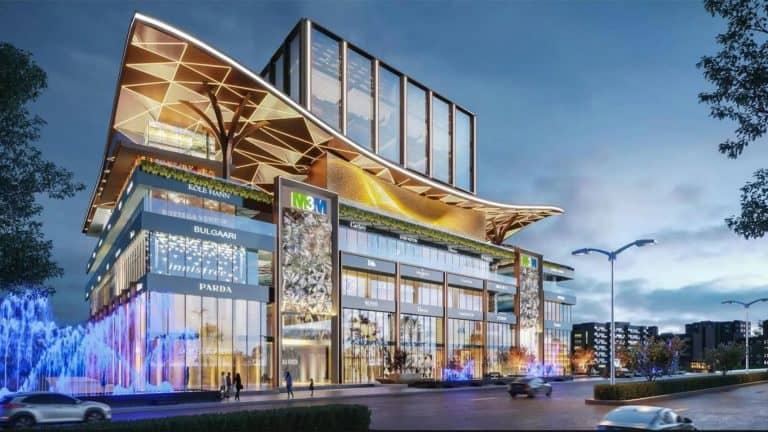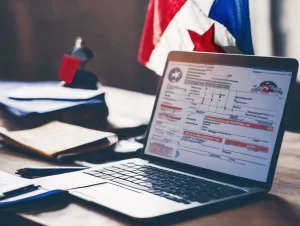Between 2024 and 2029, the commercial real estate (CRE) market is expected to have an annual growth rate of 1.4%, and the US is expected to have the highest value in the entire sector. While the pandemic did cause some setbacks in the industry, overall, you can expect the industry to still be profitable.
As demand for spaces rises, commercial property developers are fulfilling those needs. And as you can imagine, there’s lots of money to be made, and you might want in.
If you’re wondering about how to become a commercial real estate developer, then you’re in the right place. Keep reading to discover the key steps you need to take.
Understand the Industry Basics
It’s always good to understand an industry before you start a career in it. That way, you’ll truly know whether it’s an ideal fit.
As far as commercial real estate goes, types include:
- Office buildings
- Retail centers
- Warehouses
- Industrial facilities
- Mixed-use developments
As you’d might expect, each type has its unique market demands, financial dynamics, and design needs. Make sure you research these distinctions to determine which area you’d like to pursue, based on your goals and expertise.
In your research, you should look at:
- Demographic data
- Business growth patterns
- Infrastructure plans
Scatter this research across various locations to identify high-potential development areas. Consider using resources like CoStar, CBRE Market Reports, and local government economic forecasts to gain more insight. You’ll learn more about property values, growth trends, vacancy rates, and average rents.
Education and Training
You should first start with real estate courses that cover fundamental aspects, such as:
- Site planning
- Real estate finance
- Property management
- Zoning regulations
Check with your local universities and online platforms to find relevant courses.
Then, obtain specialized certifications, such as CCIM (Certified Commercial Investment Member) or CPM (Certified Property Manager). You’ll get training on real estate investment, property management, and market analysis, which will enhance your credibility.
If you’ve got the time, then you should pursue a degree in related subjects, such as finance, urban planning, architecture, or real estate. Not only will you get an in-depth understanding of economic and development principles, but you’ll also be a step above some of your competition, as you’ll be better able to handle project planning, funding, and management.
Gain Experience in Real Estate
After you’re done with education and training, you should work for a real estate firm. These firms offer exposure to deal structuring, property valuation, and tenant relations, which are all important parts of commercial development. Try getting a position in property management, leasing, or brokerage to get essential practical knowledge.
While you’re working, you should network with industry professionals too. In addition to attending industry events, you should join local real estate development associations and connect with investors, brokers, and local authorities. These relationships can be invaluable since you’ll gain insights into the local market and form potential partnerships.
Build Financial Knowledge
Yes, you’ll require practical knowledge as a commercial real estate developer, but you’ll also need financial knowledge. Without it, you won’t be able to attract investors and get appropriate funding for each project stage.
Educate yourself on investment strategies, such as debt financing (e.g. loans) and equity financing (e.g. partnerships). Plus, develop skills in return on investment (ROI) calculations, cash flow analysis, and capital expenditure forecasts. You can use Excel and financial modeling tools to aid your calculations and projections.
You should also understand the financial risks associated with commercial real estate projects. These include:
- Construction delays
- Fluctuating interest rates
- Economic downturns
Identify a Niche and Market
We’ve discussed different commercial property types in an earlier section; each one will have different tenant types and needs. For example, retail tenants look for foot traffic, while industrial ones prioritize highway access.
Because of this, you’ll want to pick a niche suited for you. It may be high-rise office buildings in urban areas, retail centers in suburban areas, or warehouse facilities in logistics hubs.
Before you make a decision, do a location analysis first. Study economic indicators in various locations, like:
- Employment rates
- Population growth
- Retail sales
Don’t forget to factor in upcoming infrastructure projects or zoning changes too.
Form Your Own Company
You don’t have to create a company to get into commercial real estate development, but it’s highly beneficial. It’ll give you a more professional appearance, which will lead to better opportunities. For example, banks will be more likely to lend money to a limited liability company (LLC) rather than an individual.
Many companies create an LLC for EACH of their commercial real estate developments, as it limits risk to that specific project and protects the parent company and other projects from liability. This approach ensures that if a development faces financial or legal trouble, only the assets within that particular LLC are exposed, while other projects and personal assets remain shielded.
Additionally, setting up an LLC for each development simplifies bookkeeping and tax management, making it easier to track project-specific expenses and revenue. Investors also appreciate this setup, as it provides transparency and reduces risk, fostering confidence and potentially attracting more capital for future projects.
For an easier time setting up your LLC, use our free business registration service. The only thing you’ll need to take care of is the state fee, and we’ll handle everything else. This ensures that your company is up and running before you know it.
Secure Financing
Without decent financing, you won’t be able to purchase land and build properties, as these processes aren’t cheap. Many commercial developers start off their careers by forming relationships with high-net-worth individuals, family offices, or investment groups.
Whichever one you choose, you’ll be able to secure the money you need to begin your business. Just make sure that you have a detailed business plan with the expected ROI for a convincing pitch.
You can also establish relationships with banks that specialize in commercial real estate. These loans do require significant equity though, so be prepared to demonstrate financial stability and a strong project plan.
Lastly, you can try for government grants or incentives. Many have things like:
- Tax credits
- Low-interest loans
- Grants for certain types of developments
Put Together a Solid Team
It’ll take a talented group of individuals to help your commercial developer career take off, so choose wisely. Work with experienced professionals, including:
- Architects to design spaces
- Engineers for structural planning
- Real estate attorneys to navigate contracts and zoning laws
- Project manager to oversee site work
Focus on Compliance and Permits
We’ve just mentioned zoning laws above; every locality has its own laws that define how land can be used. For instance, industrial areas may restrict you from creating retail spaces.
This makes it vital for you to familiarize yourself with these regulations. In addition to consulting with the real estate attorneys on your team, you should also work with urban planners and zoning specialists.
Plus, depending on the project size, you may need a range of permits. Your local government officials will have all the information you’ll need, so consult with them early to understand the requirements.
Become One of Many Successful Commercial Property Developers
Commercial property developers are in demand, especially with small business owners popping up everywhere. This means that it’s a fantastic time to get into this niche; if you go about it smartly, then you’ll have clients lining up around the corner.
Although it’s a complex field, commercial property development can result in amazing opportunities. As you gain experience and network in the industry, you’re sure to find huge success.
Sign up with Business Anywhere today to use our free business registration service. We can also be your registered agent and online notary.








